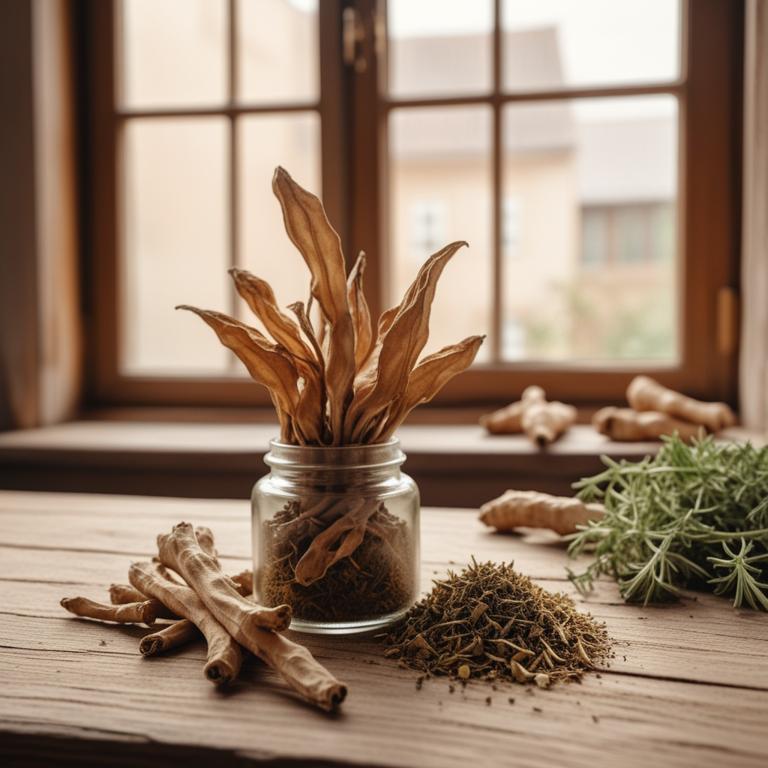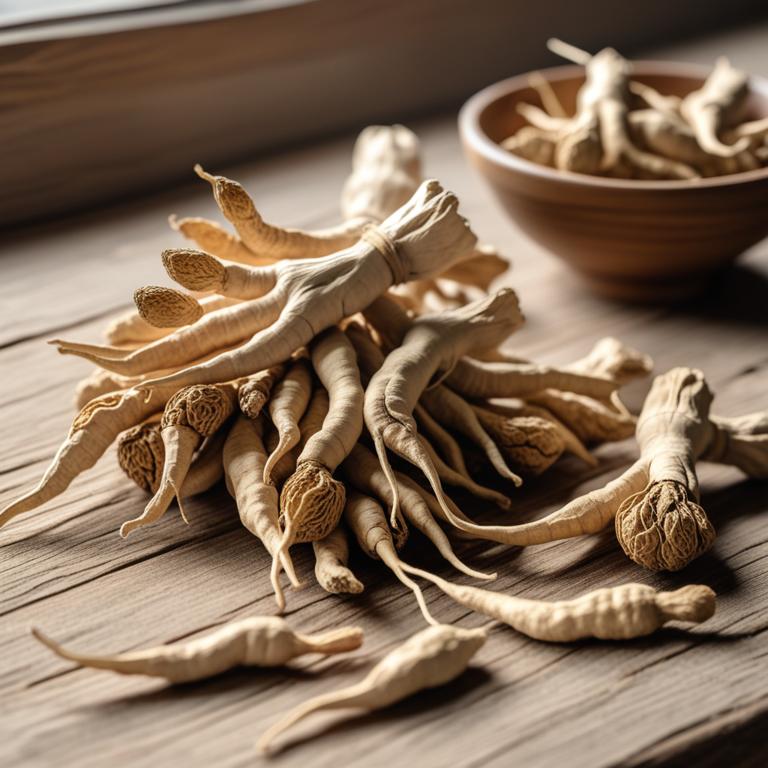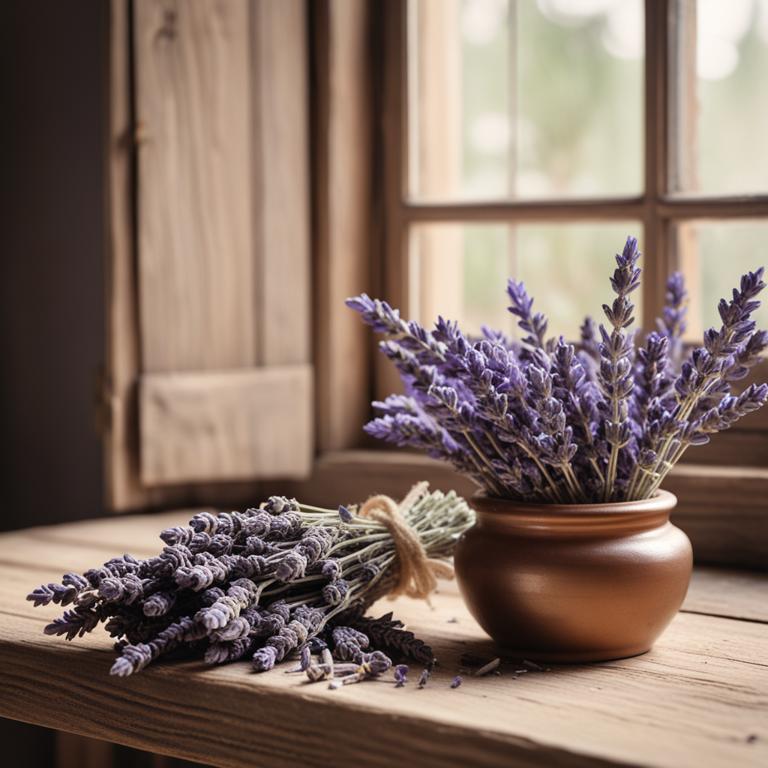Updated: Dec 1, 2024
Causes and Herbal Preparations for Ear Infection Relief
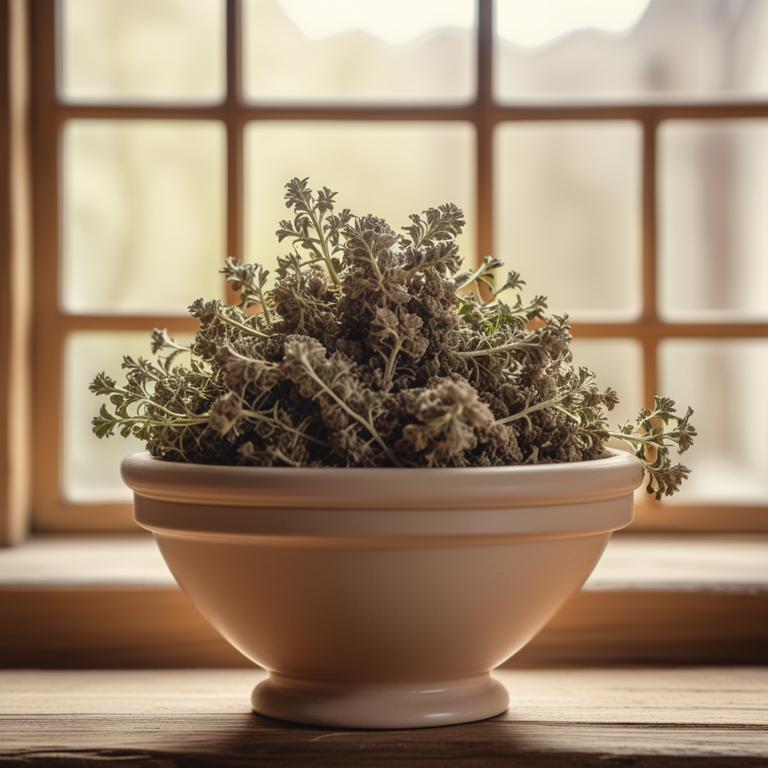
An ear infection, also known as otitis media, is a common problem that affects many people.
It happens when bacteria or viruses infect the middle ear, causing pain, fever, and hearing loss. When you have an ear infection, it can be painful to move your jaw, and you may feel pressure in your ear. You might even have trouble sleeping because of the discomfort. In severe cases, an ear infection can lead to more serious complications like hearing loss or even meningitis. Ear infections are often caused by a combination of factors, including a cold or flu virus, allergies, or a bacterial infection. Sometimes, it's also related to the Eustachian tube, which connects the middle ear to the back of the throat, getting blocked.
This can happen due to a cold, allergies, or even a sinus infection. Fortunately, there are some herbal remedies that can help alleviate ear infection symptoms. Garlic, for instance, has antibacterial properties that can help fight off the infection. Echinacea is another herb that can help boost your immune system and reduce inflammation. You can consume these herbs in various forms, such as teas, tinctures, or capsules. You can also try making a warm garlic oil by mixing crushed garlic with olive oil and applying it to a cotton ball to put in your ear.
Some people also swear by using a tea made from sage and thyme to help soothe the ear and reduce pain.
Table of Contents
What causes ear infection?
The main causes of ear infection are quite straightforward.
Eustachian tube dysfunction is one of them. The Eustachian tube helps to balance air pressure in the ear, but when it doesn't work properly, it can cause infections. This usually happens when the tube gets blocked due to a cold, allergies, or a sinus infection. When the tube is blocked, it prevents bacteria and viruses from draining out of the ear, leading to an infection. Another main cause of ear infection is a bacterial infection. Bacteria like Streptococcus pneumoniae and Haemophilus influenzae can cause ear infections. This type of infection usually occurs when bacteria enter the ear through the Eustachian tube or through a crack in the eardrum.
Bacterial infections are more common in children and can lead to severe complications if left untreated. Viral infections are also a common cause of ear infections. Viruses like the common cold or flu can cause the Eustachian tube to get blocked, leading to an infection. Viral infections are usually less severe than bacterial infections but can still cause discomfort and pain. Middle ear fluid is another cause of ear infections. When the Eustachian tube is blocked, it can cause fluid to build up in the middle ear. This fluid can become a breeding ground for bacteria and viruses, leading to an infection.
Middle ear fluid can be a result of a viral or bacterial infection, and it can also be a sign of a more serious underlying condition.
What benefits can be achieved by using herbs to alleviate ear infection?
Using herbs for ear infections can be really helpful.
They can reduce pain and discomfort, making it easier to sleep and go about your daily activities. These herbs have antibacterial and anti-inflammatory properties that help fight off the infection and bring down swelling in the ear. They can also help clear out built-up fluids and pressure, which can cause discomfort and pain.
Some herbs can even help soothe the ear canal and eardrum, reducing irritation and making it less sensitive to sound. By using herbs, you may be able to avoid taking antibiotics or other medications, which can have side effects and take time to work. Herbs can also help speed up the healing process, getting you back to normal faster.
They're a natural and gentle way to treat ear infections, making them a great option for people of all ages.
What medicinal herbs are commonly used to remedy ear infection?

Herbs can be a helpful addition to your treatment plan if you're dealing with an ear infection.
Echinacea purpurea, also known as purple coneflower, is an herb that helps boost your immune system, which can fight off the infection faster. It's also an anti-inflammatory, which can reduce the pain and swelling in your ear. Eucalyptus globulus, or blue gum eucalyptus, is another herb that can help with ear infections. Its essential oils have antibacterial properties, which can kill the bacteria that's causing the infection. When you use eucalyptus oil in a warm compress, it can also help ease the pain and reduce inflammation in your ear. Ginger, or Zingiber officinale, is a root that has anti-inflammatory properties. It can help reduce the swelling and pain in your ear, making it a natural remedy for ear infections.
Ginger also has antimicrobial properties, which can help kill the bacteria that's causing the infection. Tea tree oil, or Melaleuca alternifolia, is another herb that's effective against ear infections. Its antibacterial properties can help kill the bacteria that's causing the infection, and its anti-inflammatory properties can reduce the pain and swelling in your ear. Ginkgo biloba is an herb that can help improve circulation in your body. When you have an ear infection, your ear might become congested, and ginkgo biloba can help improve the blood flow to your ear, which can help your body fight off the infection faster. Its anti-inflammatory properties can also help reduce the pain and swelling in your ear. When you use these herbs, you can take them as supplements or apply their essential oils topically.
Always talk to your doctor before trying any new remedies, especially if you're taking any medications or have a weakened immune system.
What are the top herbal remedies used to cure ear infection?

When it comes to treating ear infections, herbal preparations can be a great alternative to traditional medicine.
One way to use herbs is through a decoction, which involves boiling herbs in water to release their active ingredients. Decoctions are effective because they can reach deeper into the ear and provide relief from pain and inflammation. For example, a decoction made from the roots of the goldenseal plant has antibacterial properties that can help fight off infections. Another way to use herbs is through a salve, which is a topical cream or ointment that can be applied directly to the ear. Salves are good for ear infections because they can provide a barrier against bacteria and other pathogens, while also soothing the skin and reducing inflammation. For instance, a salve made from the calendula plant can help calm the skin and promote healing. Herbal tinctures are another option for treating ear infections. Tinctures are concentrated liquid extracts of herbs that can be taken orally or applied topically.
Tinctures are effective because they contain high levels of active ingredients that can be quickly absorbed into the body. For example, a tincture made from the echinacea plant can help boost the immune system and fight off infections. Herbal teas can also be used to treat ear infections, particularly in cases where the infection is caused by a virus. Teas are easy to make and can be taken orally to help soothe the ear and reduce pain. For instance, a tea made from the peppermint plant can help cool the ear and reduce inflammation. Finally, herbal infusions are a gentle way to treat ear infections. Infusions are similar to teas, but they are made by steeping herbs in cold water rather than hot water. Infusions are good for ear infections because they are easy on the skin and can be used to soothe and calm the ear.
For example, an infusion made from the chamomile plant can help calm the skin and promote healing.
Additional Resources:
Are there any herbs you should not use if you have ear infection?
If you have an ear infection, it's best to be cautious with certain herbs.
For example, Digitalis purpurea, also known as foxglove, contains a powerful compound that can affect heart rhythm. Taking it when you already have an ear infection could make things worse by disrupting your heart rate. Similarly, Taxus brevifolia, or Pacific yew, has a toxic compound that can be very bad for your heart, liver, and other organs. It's not worth the risk.
Another herb to avoid is Rosmarinus officinalis, or rosemary, which can cause stomach upset and interact with medications. You don't want to make your ear infection symptoms worse by having a stomachache or reacting badly to your prescribed treatment. Achillea millefolium, or yarrow, is another herb that can cause stomach problems and allergic reactions in some people. It's also a blood thinner, which could be problematic if you're taking medications for your ear infection.
Thymus vulgaris, or common thyme, can cause allergic reactions and interact with some medications, so it's best to avoid it while you're recovering from an ear infection.
FAQ
Are there any specific herbs that can prevent ear infection?
Some herbs, like garlic and eucalyptus, have antiseptic properties that can help fight off bacteria and germs that cause ear infections.
These herbs may also help reduce inflammation and ease discomfort.
You can try using garlic oil or eucalyptus oil in a warm compress to apply heat to the affected ear.
Is it safe to use herbal remedies for ear infection during pregnancy?
When pregnant, it's best to be cautious with herbal remedies for ear infections.
Some herbs can cause problems or interact with other treatments. If you're considering using herbal remedies, make sure to check their safety during pregnancy. Look for products labeled as "pregnancy-friendly" or "safe for use during pregnancy.".
Always check the ingredients carefully.
Are there any herbs that can reduce the frequency of ear infection?
Some research suggests that taking herbs like Echinacea or Goldenseal may help reduce the frequency of ear infections.
These herbs have anti-inflammatory properties that may help fight off infection. However, more studies are needed to confirm their effectiveness.
Some people also use herbs like garlic and sage to help prevent ear infections, possibly due to their antimicrobial properties.
Related Articles
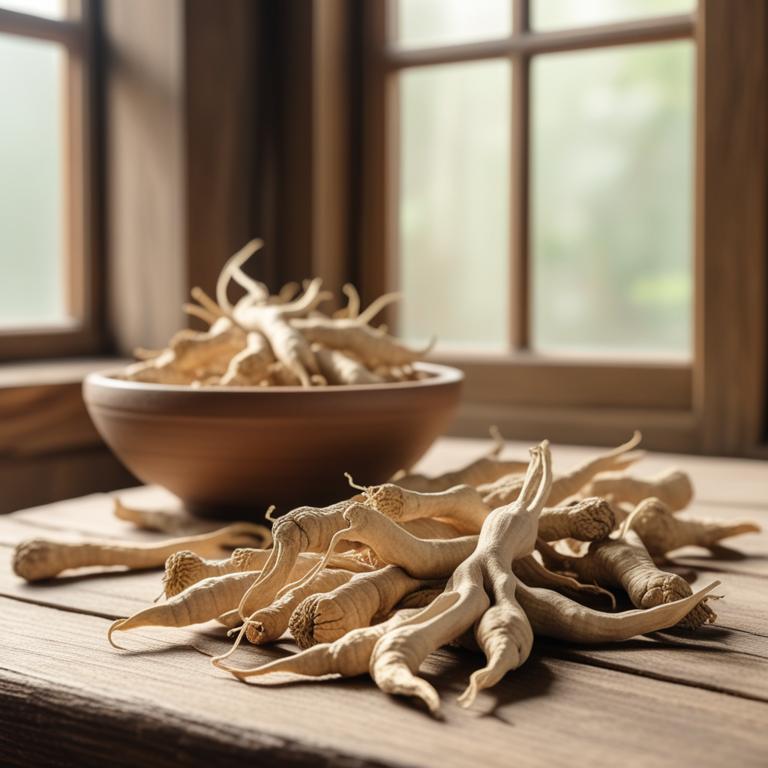
The Role of Medicinal Herbs in Neuritis Prevention and Treatment
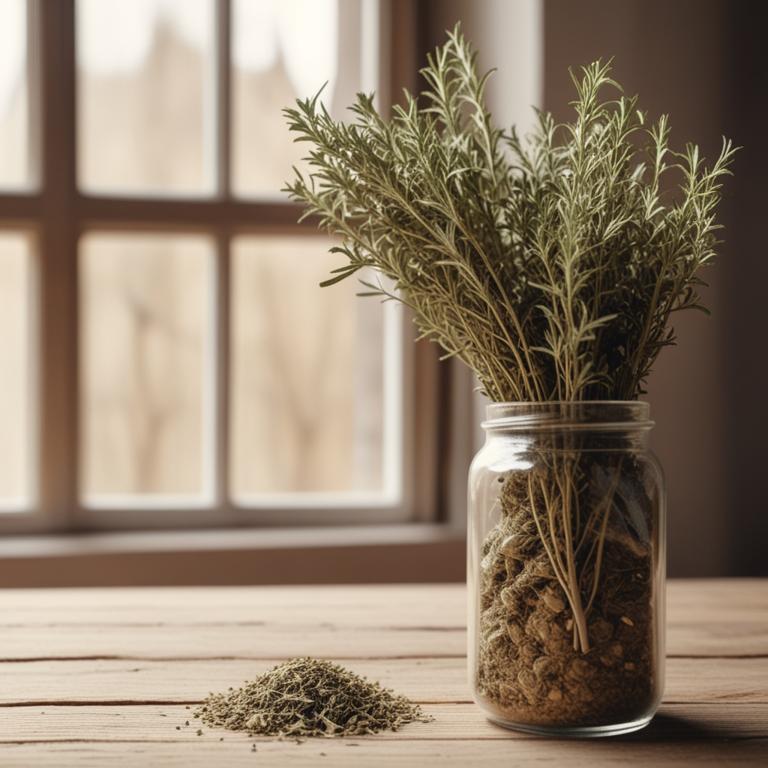
Hiccups: Exploring the Reasons and Herbal Solutions
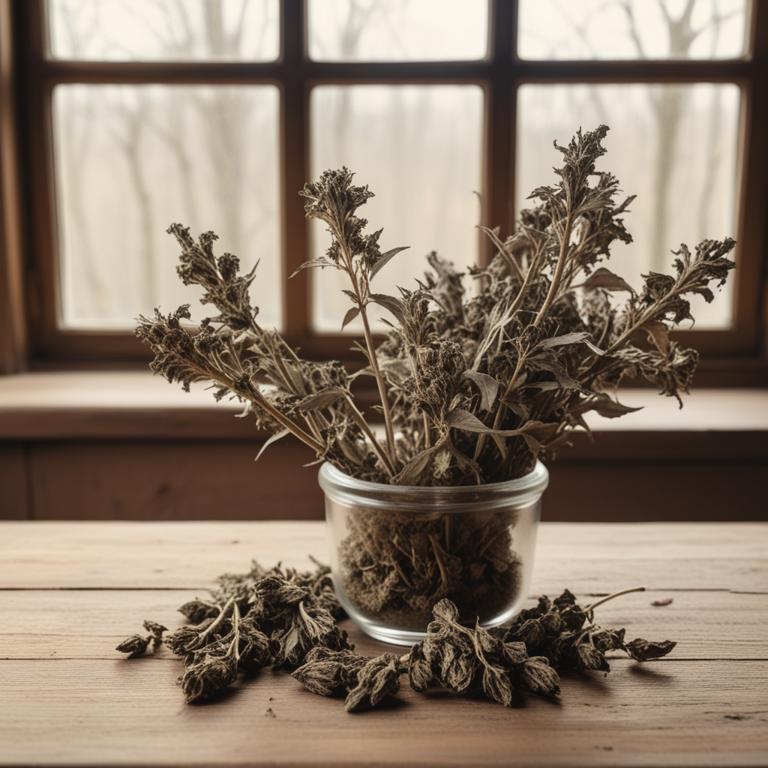
Taste Loss: Causes, Medicinal Herbs, and Herbal Preparations for Prevention

Dry Mouth Remedies: Causes and Natural Treatments
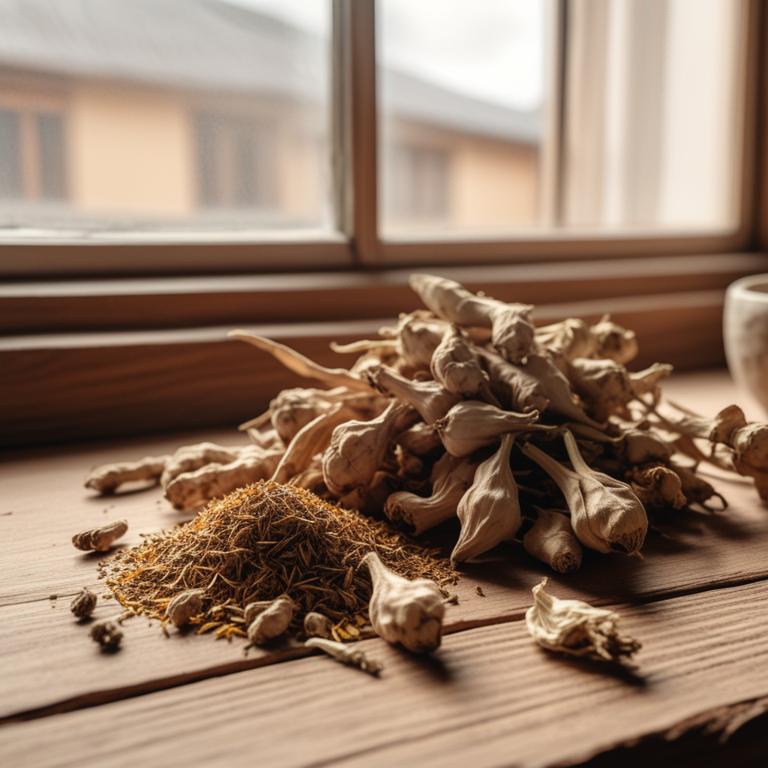
One Side Headache: Causes, Herbal Remedies, and Natural Cures




